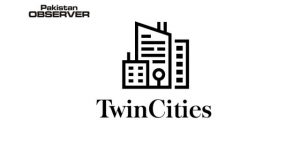Staff Reporter
The information regarding PTV’s operations, future business plans and restructuring including the recommendation to review the TV license fee by PTV’s Board of Directors that have appeared in a section of press during past few days is ill-founded, incomplete and has been based on facts quoted completely out of context. This was stated in a clarification issued by PTV on Monday.
Constituted about a year ago the independent Board of Directors put in place an elaborate revamping and reform agenda for PTV comprising of some immediate, short term, medium term and long term strategies to bring it at par with public broadcasters elsewhere in the world. As a result of these strategies PTV has recorded an operational profit of Rs. 300 million during FY 2018-19; after having run in losses for three consecutive years i.e; from 2015-2018.
These reform strategies include new business strategy, technology upgradation, HR restructuring in lines with modern public broadcasters, new marketing and content strategy, new digital strategy and new fixed assets strategy. In order to bridge the financial shortfall PTV’s management is carrying out a multifold strategy that includes cost-saving; check on leakages; and revenue stream optimization. The new LPR strategy is part of the overall HR revamp and not targeted to any financial saving as the employees still get their salaries. Following these comprehensive reform strategies PTV is poised to continue as a public service TV, the primary role to be performed by a national broadcaster.
In order to perform this responsibility public broadcasters are supported by the respective Governments through TV license fees all around the world to project their national narrative; undertake the non-viable development projects of transmission dissemination; carry out commercially non-viable educational and information content necessary for national development and integration: and produce quality public interest content contributing to national integration, social harmony and peace.
Countries like UK, France, Germany and Turkey charge monthly TV license fee to fund BBC, France TV, DW and TRT respectively. The monthly TV license fee charged by these channels is GBP 13 (Rs. 2,567) by BBC; Euros 12 (Rs. 2,100) by France TV; Euros 18 (Rs. 3,150) by DW and 2% of monthly electricity bill by TRT.
Following the similar international model, the Pakistan Government charges a monthly TV license fee of Rs. 35 only.










